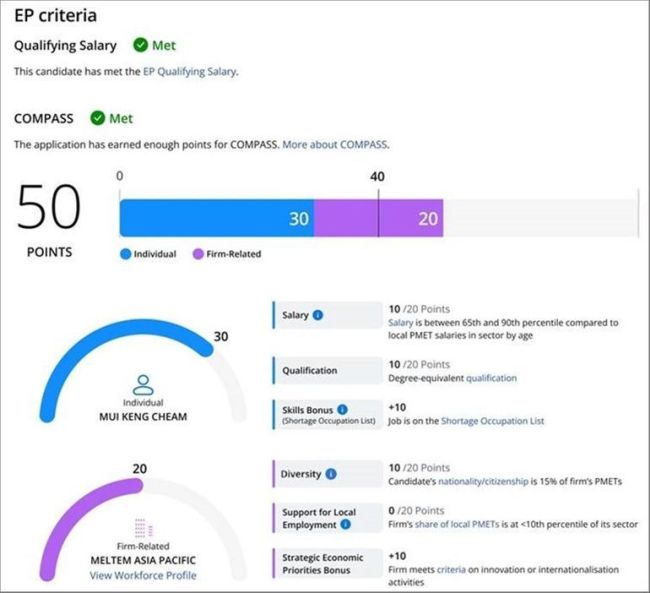Please note, while we address some country-specific updates related to the COVID-19 pandemic, this Alert contains information regarding global restrictions and closures as they stand today. Given the constantly changing nature of this situation, we highly recommend reviewing any global mobility inquiries on a case-by-case basis, including any consulate-specific or immigration authority resources, in "real-time" before traveling internationally. Please reach out to our Global Mobility Team in advance of any international travel.
Germany - Processing of Schengen Business Visitor Visa Applications in the United States
German consulates in the United States have changed the list of required documentation for a Schengen business visitor visa application. In the past, it was sufficient to file a company support letter in copy and the original invitation letter from the inviting company. German consulates now require receipt of a separate confirmation of employment letter in the original. Filing of a complete application package ensures smooth and prompt processing, and it is strongly recommended to add this confirmation of employment letter.
Please see further details here and the document checklist here.
Italy - Earlier Start of Work Authorization
Italian regulations have changed so that Non-EU nationals can start working immediately once they enter Italy with their work visa. It is not necessary that the worker first sign the contract to stay.
Affected are Non-EU nationals who work in Italy based on an EU Blue Card, an Intra-Company Transfer, or an EU Intra-Company Transfer permit.
Reason for this change is the major delay to secure the contract to stay appointments. Further details please see here.
New Zealand Skilled Migrant Residence Update
The Skilled Migrant Category (SMC) has been the main residence pathway in New Zealand for many years.
The government announced a new SMC for highly skilled migrants, which will be introduced on October 9, 2023. It will offer a straight forward application process with processing times of not more than two months. This new category will support economic growth by providing residence visas to applicants who can demonstrate that they can fill medium to long-term skill needs in New Zealand. This new category uses a simplified 6-point skills assessment, with no cap on the number of migrants that can be approved each year.
The applicant for residence under the new SMC must meet the following requirements:
- Be 55 years or younger at the time of application
- Meet good health and character requirements
- Have an acceptable level of English
- Have skilled employment with an accredited employer. Employment
will be considered skilled if sits at:
- ANZSCO level 1-3 with payment at median wage ($29.66 hourly); or
- ANZSCO level 4-5 with payment at 1.5x median wage ($44.49 hourly).
- Claim six eligibility points. This can be made up of:
- Between three to six points for
- Occupational registration; or
- A recognized qualification; or
- Meeting certain income thresholds.
- A further three points for skilled New Zealand work experience (one point per year).
- Between three to six points for
Please note that applicants with PhD qualifications, occupational registration requiring six years of training, and high-income earners ($88.98+ hourly) will benefit the most from this policy change. These individuals will be able to secure six points, without needing to spend time working in skilled New Zealand employment.
SMC Interim Visa - Introduction
Please also note that an interim visa will be introduced to allow individuals to remain in New Zealand if an SMC application has been submitted, but their temporary visa expires before a decision is made. These SMC interim visas will have multiple entry travel conditions and can be issued for up to 24 months. This is a positive update, which should largely avoid the need to renew temporary visas while waiting for an SMC application to be decided.
Please see further details here.
Singapore - COMPASS and Enhancement of the Self-Assessment Tool
Below are the upcoming changes in Singapore.
Applicants for employment passes (EP) must pass the two stage eligibility framework as of September 1, 2023:
Stage 1 - Meet the EP Qualifying Salary
Stage 2 - Pass COMPASS
Enhancement of SAT on August 1, 2023
As of August 1, 2023, the Ministry of Manpower (MOM)'s Self-Assessment Tool (SAT) will be enhanced to help the future employer to plan ahead and predict whether an application or renewal request will be successful.
Sample SAT assessment result for EMPLOYER

Please note that the company needs an EP eService account to access the enhanced SAT. The company's data privacy for COMPASS C3 and C4 scores is important. To protect it, only those with the company's EP eService login will have access to the enhanced SAT. Employment agencies will still be able to transact on behalf of its clients, but will only see the overall outcome of whether an application/renewal request meets the EP qualifying salary and COMPASS.
Please see the latest information on COMPASS here.
Spain -Changes to Highly Qualified Work Permit Category
The Highly-Qualified Work Permit now has two subcategories:
1. The EU Highly-Qualified Professionals Permit (EU Blue Card)
EU Blue Card Holders from other EU Countries who will be working in Spain for more than 90 days may apply for the Spanish EU Blue card. It will be issued for three years and can be extended for an additional two-year period. Besides having to meet the salary threshold (1 to 1.6 times of the average gross annual salary) and having a job offer, the applicant qualifies if they hold at least a 3-year Bachelor's degree or higher or 5 years of experience in the relevant sector, unless it is in information and communication technology field, in which case 3 years of experience will be sufficient. This blue card provides work authorization as of the filing date of the application.
2. National Highly-Qualified Professionals Permit
This subcategory is for all foreign nationals who will be locally employed in Spain, meet the salary threshold, and whose level of education is a Técnico Superior or higher or 3 years of labour experience in the relevant economic sector. The initial permit will be valid for three years with the possibility to file a renewal application for an additional two-year period. It is important to note that the applicant can only begin to work once the application is approved.
EU Blue Card holders who received the card in a different EU country will be allowed to work in Spain for up to 90 days without the need to obtain a Spanish EU Blue Card.
Once the blue card holder obtains a blue card in another EU country, it will result in that the Spanish EU blue card losing its validity.
United Kingdom - Visa Fee Increase and Changes to Visa Routes
UK visa fees increase
On 19 July, the Home Office announced an increase in UK visa fees and Immigration Health Surcharge. The exact date for the change and the updated fees will be announced in autumn when the UK Parliament returns from summer break. Immigration fee regulations are normally laid before Parliament at least 21 days before they take effect, but this is a convention that can be departed from with justification.
At this stage, the following information is available about the increases:
Significant increase in Immigration Health Surcharge to £1,035 (currently £624) per annum, and the discounted rate for students, their dependents, those on Youth Mobility Schemes and under-18s will increase to £776 (currently £470) per annum. This is subject to final confirmation in legislation, but once in place, the increased fee will be paid by migrants entering or staying in the UK for six months or more and the family members of migrants and British citizens alike.
Most work and visit visas will increase by 15%.
Student visas, certificates of sponsorship, settlement, citizenship, wider entry clearance and leave to remain visas, and priority visas will increase by at least 20%.
The fees for those applying inside and outside of the UK as well as priority service will be equalized, so people pay the same fee whether they apply from within the UK or from outside the UK. It is currently cheaper to apply from within the UK for certain visa types.
The UKVI is removing remaining instances of the £19.20 fee for biometric enrolment, and the £161 fee for a Transfer of Conditions in-country applications. Fees are also being removed for customers amending details on their physical evidence of immigration status and for a like-for-like replacement of a BRP where the validity of the card has expired.
The increases in the fees are justified by the UK government that they will be covering more of the cost of the migration and borders system, allowing the Home Secretary to divert more funding to police forces to fund the pay rise for the police.
In practice, this means that the employer will need to adjust their budget when considering employing foreign nationals in the UK. For example, the total average cost to a medium or large employer for a 3-year sponsored work visa for a single employee will increase to at least £7,000 and it is excluding legal advice fees and any additional charges, such as priority processing, English language or TB testing requirements.
Changes to the Student visa route including switches to a Skilled Worker
Two changes were published in the Statement of Changes in Immigration rules on 17 July 2023 regarding Student routes in the UK:
From 17 July 2023 - Removing the ability for international students to switch out of the student route into work routes before the completion of their studies (or at least 24 months of a PhD).
The following criteria must be met for the Students switching to a Skilled Worker:
- Condition A:
- the applicant must have completed the course of study for which the Confirmation of Acceptance for Studies was assigned (or a course to which ST 27.3 of Appendix Student applies); or
- Condition B:
- the applicant must be studying a full-time course of study at degree level or above with a higher education provider which has a track record of compliance; and
- the Certificate of Sponsorship in SW 1.2(d) must have a start date no earlier than the course completion date; or
- Condition C:
- the applicant must be studying a full-time course of study leading to the award of a PhD with a higher education provider which has a track record of compliance; and
- the Certificate of Sponsorship in SW 1.2(d) must have a start date no earlier than 24 months after the start date of that course.
The changes concerning international students switching will affect all international students from 17 July 2023, departing from the usual convention that changes to the Immigration Rules come into force no earlier than 21 days after their being laid in Parliament. This has been implemented to reduce the potential influx of applications for dependants and switching being made in the 21 days usually available.
The amendments also remove the ability for international students to apply for permission to stay as a dependant in a work route, as a dependant under the UK Ancestry route, or as a dependant in any of the Temporary Worker routes.
From 1 January 2024 - removing the right for international students to bring dependant family members, unless they are on postgraduate courses currently designated as research programmes.
There will be no impact on students who are making applications relating to courses starting in autumn 2023, and the new rules apply to those who start their courses from 1 January 2024.
This means that spouses/partners and children of overseas students will have to look at alternative routes if they want to join a family residing in the UK on a student visa. However, it has been said that the government will work with the higher education sector to explore alternative options, ensuring that students studying at the UK's world-leading universities can bring dependents.
Other sponsored route changes
From 7 August 2023, updates are made to the sponsor guidance for some of the sponsored route visas (Skilled Worker, Ministers of Religion and Scale-up Worker). These include a new definition of supplementary employment and new provisions for supplementary employment for GPs after 7 August 2023.
A new genuineness requirement has been introduced for Skilled Worker, GBM and Scale-up routes and applies to applications submitted on or after 7 August. From this date, the applicant must be able to show that they genuinely intend and can undertake the role for which they have been sponsored and that they don't intend to take unpermitted additional employment.
The Home Office also implemented recommendations from the Migration Advisory Committee (MAC) to add certain construction and fishing industry occupations to the shortage occupation list:
5119 Agriculture and fishing trades not elsewhere classified - only jobs in the fishing industry
5312 Bricklayers and masons - all jobs
5313 Roofers, roof tilers and slaters - all jobs
5315 Carpenters and joiners - all jobs
5319 Construction and building trades not elsewhere classified - all jobs
5321 Plasterers - all jobs
9119 Fishing and other elementary agriculture occupations not elsewhere classified - only deckhands on large fishing vessels (nine metres and above) where the job requires the worker to have at least three years fulltime experience in using their skills. This experience must not have been gained through working illegally.
Skilled Worker applicants applying under these occupational codes will benefit from lower visa fees and salary thresholds.
EU Settlement Scheme
From September 2023, people with pre-settled status under the EU Settlement Scheme (EUSS) will automatically have their status extended by 2 years before it expires if they have not obtained settled status. This is good news for all EUSS holders who miss the deadline of upgrading their EUSS pe-settled status into a fully settled status.
The process will be automated by the Home Office and reflected in the person's digital status. They will be notified of the extension directly. This will ensure that nobody loses their immigration status if they do not apply to switch from pre-settled to settled status.
The government also announced plans during 2024 to complete automated checks of pre-settled status holders and to establish their ongoing continuous residence in the UK. This step will result in those eligible for settled status being automatically upgraded to a settled status without needing to make an application. More details about the process and any safeguards for this process are awaited to be published.
The EUSS route will be closed on 8 August 2023 to new applications by Surinder Singh and Zambrano applicants. The routes will remain open to those who are already on them (or with a pending application, administrative review or appeal), or who have pending access to them via a relevant EUSS family permit.
Finally, from 9 August 2023, there is a new validity requirement that joining family members cannot be illegal entrants and it will apply to applications on the date of decision.
Additions to the UK visa nationals list
Under a second set of Statement of Changes to the Immigration Rules this month, as of 3 pm on 19 July 2023, new countries were added to the list of UK Visa nationals including:
Dominica
Honduras
Namibia
Timor-Leste
Vanuatu
This means that the nationals of these countries will be required to obtain a UK visitor visa or a Direct Airside Transit Visa if they intend to transit via the UK to another country. Previously, these countries enjoyed a visa-free entry regime to the UK as visitors and were not required to apply for a UK visa before arrival. A statement from the Secretary of State explains the various reasons for this, including abuse of the "golden passport" scheme, fraudulent EUSS applications, and asylum claims.
Those with existing tickets to travel in the next month would be exempt from the new rules. There will be a four-week, visa-free transition period for those who hold confirmed bookings to the UK made on or before 1500 BST on 19 July 2023 where arrival in the UK is no later than 16 August 2023.
Extending the deadline for Ukraine Extension Scheme
The Ukraine Extension Scheme currently allows Ukrainian nationals to extend their stay in the United Kingdom if they had leave to remain at any point between 18 March 2022 and 16 May 2023. This route was planned to close to new applicants on 16 November 2023.
The Statement of Changes has updated the latest date on which an applicant must have had to leave to 16 November 2023 and extends the deadline for new applications to 16 May 2024.
Youth Mobility visa upgrades for New Zealand and Australia
From 29 June 2023, the nationals of New Zealand applying for a Youth Mobility visa will be subject to the following changes:
The age requirement for the Youth Mobility Scheme was increased to 18-35.
They can now apply for an in-country extension after their initial grant of entry clearance to be granted permission to stay for up to a year. The total period the person may stay in the UK under the Youth Mobility Scheme does not exceed 3 continuous years.
Similar changes are expected to be implemented for Australian nationals from 31 January 2024.
The content of this article is intended to provide a general guide to the subject matter. Specialist advice should be sought about your specific circumstances.


